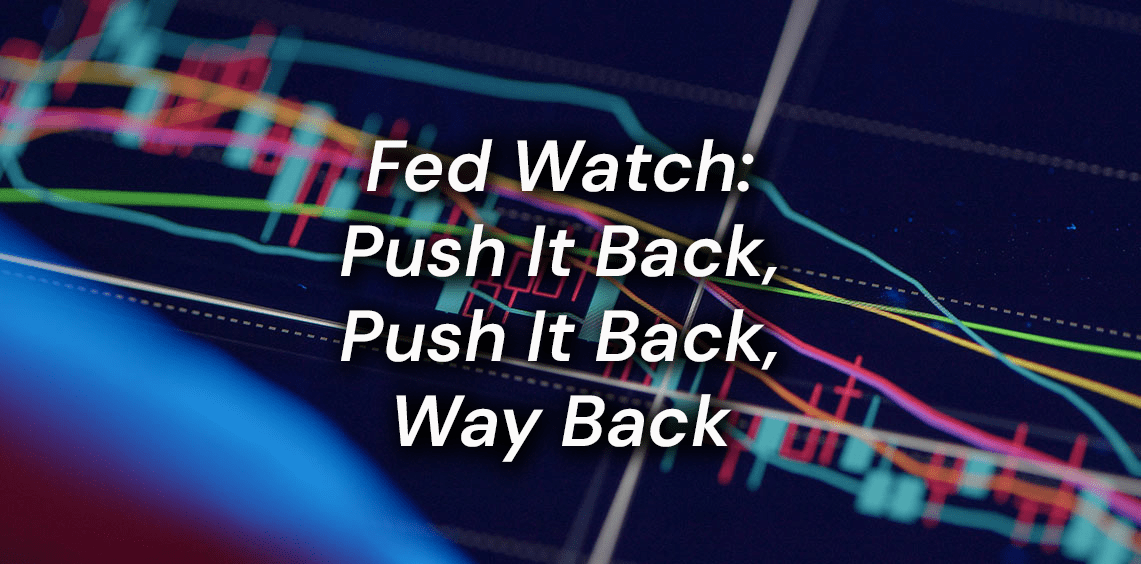The following is a part 1 of 2 of a summary of an episode of WisdomTree’s Crypto Clarified podcast. The discussion is between Benjamin Dean, Director of Digital Assets; Ryan Louvar, Chief Legal Officer and Head of Business and Legal Affairs; and Jeremy Schwartz, Global Chief Investment Officer at WisdomTree.
This part covers the topic of: a recent flurry of spot Bitcoin ETF applications.
Benjamin Dean:
Everybody’s speculating, what do the recent Bitcoin exchange traded fund (ETF) applications in the United States of America mean? Can you give us some history to help put it in context?
Ryan Louvar (RL)
In the US, spot Bitcoin ETFs have faced regulatory hurdles for over a decade, with multiple filings being disapproved by the SEC. However, in recent years, as the Bitcoin market has matured and more exchanges and service providers have entered the space, there has been a notable increase in new filings. Around two years ago, some issuers attempted to add Bitcoin futures to portfolios, and after a gradual approval process, ETFs were allowed to hold 100% Bitcoin futures. This development sparked hope that spot Bitcoin ETFs might also see approval, as Bitcoin futures ETFs and proposed spot Bitcoin ETFs would be using similar pricing mechanisms.
Some of the previous rejections for spot Bitcoin ETFs were due to concerns about potential market manipulation. Although Bitcoin futures ETFs were approved, the SEC still raised concerns about the lack of regulation and surveillance sharing agreements in the spot Bitcoin market.
Recently, one of the spot Bitcoin filers indicated that they had entered into a surveillance sharing agreement with a spot Bitcoin exchange, and other filers followed suit, hoping this would address the SEC’s concerns. Now, the industry is awaiting the SEC’s reaction to these developments and whether spot Bitcoin ETFs will finally be approved.
Benjamin Dean:
For the listeners who don’t fully understand the differences between a spot and a futures based ETF, Jeremy, could you just quickly run people through why or how they’re different?
Jeremy Schwartz:
It’s really interesting. Our firm considered allocating 3% of Bitcoin to some of our commodity strategies, viewing Bitcoin futures as comparable to gold. In client portfolios, Bitcoin served as a competitor to gold, with limited supply due to the digital mining process, and it had potential as a currency.
Considering it within the commodity framework, we integrated Bitcoin into several strategies. Initially, there were concerns about Bitcoin futures funds, particularly the 100% funds, due to the upward sloping curve of futures prices being higher than current prices. This curve is expected, as interest rates also follow an upward sloping pattern, reflecting the opportunity cost of keeping money in the bank earning interest.
The worries were primarily related to the cost of rolling futures when the curve is upward sloping, as it does not provide current spot prices. Besides the raw interest rate differential, additional factors like storage costs, security costs, and implied capital interest were to be considered when buying in the future. Initially, some predicted a 10 to 15% cost for rolling these futures.
Ryan, can you tell us about the SEC’s concerns around market manipulation and the subsequent, proposed surveillance sharing arrangements? People said similar things when Gold was first launched. Is there something that makes Bitcoin different?
Ryan Louvar:
It’s an interesting point of criticism directed towards the SEC. If the concern is manipulation, then how can they approve Bitcon futures products and not spot Bitcoin products?
There are a couple of potential reasons for this. Futures products have natural size limitations due to position limits, which have kept them from growing beyond a billion dollars. So, the SEC has been incrementally allowing futures products with these limits in place. On the other hand, in the spot market, such as a potential spot Bitcoin ETF, there wouldn’t be such limitations.
Another difference is that there’s data available from a regulated futures marketplace for understanding how futures trade, whereas the SEC is concerned about the lack of data from historical spot Bitcoin exchanges. The SEC has been actively seeking to regulate crypto exchanges more broadly, and this is an important aspect they are focusing on.
The SEC’s requirement for a comprehensive surveillance sharing agreement from a regulated market of significant size is crucial. The term ‘comprehensive’ is essential, and while the regulated market doesn’t necessarily have to be overseen by the SEC (like gold ETFs or oil ETFs), the current problem is that the exchanges in question are not regulated to the SEC’s satisfaction.
The question now is whether the surveillance sharing agreement and other information provided by the exchanges and issuers can overcome these regulatory concerns. That remains one of the key questions to address.
Benjamin Dean:
When we say surveillance agreement who is doing it, how does that work and how does it potentially alleviate the perceived problem?
Ryan Louvar:
Some parties, particularly Coinbase, have entered into agreements with regulated exchanges like NASDAQ and CBOE. This requires Coinbase to share significant data, which will then be examined to determine if there’s any manipulative conduct or untoward activity happening on the exchange.
However, it remains uncertain what exactly the SEC expects from this data and whether it will be sufficient. The hope is that a comprehensive surveillance sharing agreement with a regulated market of significant size may meet the SEC’s requirements.
The delay in approving spot Bitcoin ETFs compared to other types of ETFs (which typically take 75 days to market) is due to the filing process required of the exchange. Most ETFs in the US are governed by the Investment Company Act of 1940, which oversees funds investing in securities like stocks and bonds.
In the past, there were no specific listing standards for all types of ETFs, so they had to apply through the exchange for special listing rules. This process involves Rule 19b-4 under the Securities Exchange Act of 1934, which allows the exchange to apply on behalf of the issuer to create listing rules satisfying the SEC’s requirements to prevent fraudulent and deceptive conduct.
The reason for the longer approval time is that the filing process is at the SEC’s discretion. Though there are specific timelines, the SEC may extend, reject, approve, or reject the filing. Existing ETFs that meet generic exchange listing standards can automatically go effective in 75 days without going through this process.
This is not a new process, as many ETFs, from gold to oil and those investing in commodity futures, have had to go through similar steps. However, the SEC has the power to dictate its expectations, creating uncertainty about what they truly want.
Jeremy Schwartz:
In terms of the key timelines and milestones, how should people think about it? Do you think there’ll be a group of these applications approved together?
Ryan Louvar:
Initially, some filings were rejected because the exchanges mentioned they would enter into a surveillance sharing agreement without providing the actual name of the exchange or the agreement. So, they had to refile with at least the name of the exchange included. After the SEC accepts the filing, it gets published in the federal register, marking the start of the timeline for the SEC’s response. Generally, this timeline extends well into the nine months timeframe.
In addition to the exchange filing, there’s also the prospectus process that needs to be considered. Prospectuses have been filed, but there will be a dialogue with the SEC regarding the content, with updates and responses to comments made by the issuer to gain SEC approval for the prospectus.
The prospectus process may vary for different ETF issuers, depending on factors like custodians used and price sources. The extent and timing of the SEC’s comments and the issuer’s response will affect how quickly an ETF can ultimately be approved and launched. Considering these factors, the entire timeline for approval could take up to a year and a half, even under the best circumstances.
Benjamin Dean:
Are there any sticking points that you think that folks should keep an eye on? Where else might there be obstacles or roadblocks?
Ryan Louvar:
Once the applications are in a more advanced stage, the SEC may have questions from a prospectus standpoint. As the prospectus filings are updated, it will provide insight into the specific issues the SEC is considering. One of the reasons the Bitcoin futures ETFs were approved is because the futures are custodied through SEC or CME regulated entities. However, spot Bitcoin doesn’t have the same custodial oversight. Therefore, the SEC will likely focus on the custodial aspect and how Bitcoin is being overseen to ensure there are sufficient controls in place for its protection and oversight.
The following is a part 2 of 2 of a summary of an episode of WisdomTree’s Crypto Clarified podcast. The discussion is between Benjamin Dean, Director of Digital Assets; Ryan Louvar, Chief Legal Officer and Head of Business and Legal Affairs; and Jeremy Schwartz, Global Chief Investment Officer at WisdomTree.
This part covers the topic of a case involving Ripple vs. the SEC.
Jeremy Schwartz:
Let’s go back to the Ripple case, can you explain this concept of crypto assets securities?
Ryan Louvar:
In this explanation, I’ll take us back to the 1940s.
So look, the SEC has been very focused on indicating that a significant or majority of cryptocurrencies are securities. The SEC has then filed enforcement actions or litigation against certain cryptocurrency issuers. The issuer of XRP Ripple is one of those cryptos that has been sued by the SEC. The heart of the issue is that if we think about what is the definition of a security, if you look in the statute, you’ll see things that we always think about such as stocks, bonds, but then a few lines down is this term “investment contract.”
And so, essentially, the SEC’s taken the position, through enforcement actions or these cases that they’re litigating, that certain digital assets are investment contracts. And that takes us then to the 1940s where there’s this Supreme Court case called the SEC vs. Howey.
Basically, what that case determined is the question of whether there was an investment contract, a security, in an offering of an orange grove coupled with a contract for cultivating the oranges, marketing the oranges, and then remitting proceeds to those investors?
If we step back and say, if I’m selling you an orange grove, nobody would call that a security. I’m just selling you an orange grove or I’m selling you an orange. But if I’m doing other things to potentially enhance the value of that orange through this enterprise, where then your expectation of profits is from what I’m doing, that is then an investment contract.
The Supreme Court indicated that in fact there was an investment contract. And really it comes down to four factors, but I’ll articulate it as three as the court did in the Ripple case.
And it’s really an (1) investment of money (2) in a common enterprise with (3) expectation of profits solely from the efforts of a promoter or a third party.
The SEC has, over time, I think really through either enforcement actions or even pronouncements and statements, broadened the interpretation of what each of those elements mean and how those elements might be met.
So right now, we have a fairly broad landscape as largely determined by the SEC, not by the courts, around what would meet this definition that is now seeing some challenge in the courts. And honestly, for the litigated cases to-date, the SEC has largely been on the winning side.
And so, this was the first time really where there was a decision that said, “Wait a second, we actually don’t have a security here, not an investment contract.” So, maybe I’ll stop there and then we can dig into the weeds a little more on exactly what that meant. It is very nuanced.
The headline item though, which I think the crypto industry really cheered for, was that the judge said XRP inherently is not a security, it’s basically just a digital token. You end up with a situation where the SEC is saying crypto assets are securities and then you have a judge saying inherently this crypto asset is not a security. It would seem to be a win, certainly, for the crypto industry. Then, the judge said, If you’re talking about an investment contract, that’s very facts and circumstances specific, so you really need to look at the facts and circumstances. And there were a couple of different instances that she looked at.
The judge considered a few aspects of XRP sales as securities. First, she examined sales made to sophisticated institutions, where Ripple executives directly sold XRP to hedge funds and similar entities, along with making statements about XRP. In this instance, the judge ruled that these sophisticated purchasers understood Ripple’s business and had an expectation of profits from Ripple’s actions, leading to an investment contract determination. This ruling was a win for the SEC.
However, the judge then evaluated programmatic sales on exchanges, where buyers might not have been aware they were buying from Ripple and might not have had profit expectations from Ripple’s efforts. Many of these buyers were likely unsophisticated and purchased XRP purely for speculative purposes. In these cases, the judge concluded that there was no investment contract, especially with regards to the expectation of profits from others. This aspect of the ruling emboldened exchanges, as it suggested that listing tokens might not constitute investment contracts.
While the ruling brought some clarity, there’s still ambiguity, particularly regarding the status of crypto sales on exchanges. The exchanges seem to be more confident in their prior analysis that the assets they list aren’t securities, supported further by this decision. Additionally, the judge ruled that Ripple’s distribution of XRP to other third parties, such as employees, was not an investment contract.
Despite the ruling’s policy implications, it’s crucial to distinguish between policy considerations and legal determinations. If the transactions are not deemed securities from a legal perspective, policy concerns would require congressional intervention to address the perceived gap in regulation. So, I think that dialogue is only going to increase in the coming months.
Jeremy Schwartz:
If the SEC continues to go down this path of calling more things securities, how do you see the legal landscape evolving? They’re going to have to come up with new laws it seems like.
Ryan Louvar:
The ruling has significant implications, drawing a dividing line where certain tokens like XRP were considered securities due to investment contracts in sales to institutions. As a result, issuers of such tokens need to comply with SEC regulations, draft prospectuses, and fulfill disclosure requirements for investors or seek exemptions.
On the other hand, tokens lacking the elements of an investment contract, especially those bought on exchanges, are not considered securities. Many in the industry believe that this ruling might extend to other digital assets, meaning they won’t be classified as securities.
However, the lack of clear boundaries creates uncertainty. For more clarity, congressional action might be necessary to define and regulate cryptocurrencies. The aggressive SEC enforcement has left the crypto industry looking for a different regulator, like the CFTC or a new entity.
There are ongoing bills in Congress, and following the Ripple decision, some representatives have spoken out about the need for legislation. The judge’s decision may leave a gap from a public policy standpoint, as sophisticated investors receive protection, while exchange buyers might not be covered by securities laws.
Ultimately, there is a call for new legislation to address this issue. And the question is, what would that look like? Time will tell.
Benjamin Dean:
What should people be keeping an eye on over the next six to twelve months?
Jeremy Schwartz:
During 2022 you had a bear market in tech driven by higher interest rates. The cost of capital went up. You’d say things that don’t carry a profit stream are of no interest including Bitcoin.
However, this year we’ve seen a banking panic, people losing some faith in the deposits of banks. That’s created some renewed interest in Bitcoin. Remember, Bitcoin was initially created as an alternative to the banking system, with a fixed number of coins in existence, which has raised interesting questions about sound money policies.
Regarding the spot Bitcoin ETF, it may attract a new class of investors by removing the stigma associated with non-traditional investment vehicles. The ease of access through brokerage accounts and the potential reduction in trading costs could generate incremental demand. However, the lack of regulatory clarity remains a significant concern for both Bitcoin and other cryptocurrencies. If there were more certainty in the regulatory landscape, financial advisors might be more inclined to include cryptocurrencies in their portfolios. Overall, the Ripple case is as interesting as the spot Bitcoin ETF, and the broader implications of regulatory decisions extend beyond just Bitcoin.
Ryan Louvar:
I think the interesting thing to watch is if the SEC appeals the XRP decision? They certainly won one prong, but I’d say that the prongs that they lost are probably more important from a policy standpoint. The crux of it though is that right now it’s one decision from a district court judge, although important in the Southern District of New York, as it can be very persuasive to other courts. However, if SEC appeals and loses, then district courts within that jurisdiction have further solidified the outcome through an appealed decision.
And also, watch how the exchanges and issuers respond. It’s interesting because how might exchanges change their analysis as to what is a security, which I think many of the exchanges in the US certainly have very prescriptive processes around?
And then finally, how do the issuers respond? Clarity is still lacking. It would be good to see if we get any clarity including from Congress. That’ll be fun to watch.
Subscribe to Crypto Clarified on Youtube here: youtube.com/@cryptoClarifiedPodcast?sub_confirmation=1
Subscribe to Crypto Clarified on Spotify here: https://open.spotify.com/episode/2jEPVc8ahjmUdhVXiiCwpT







